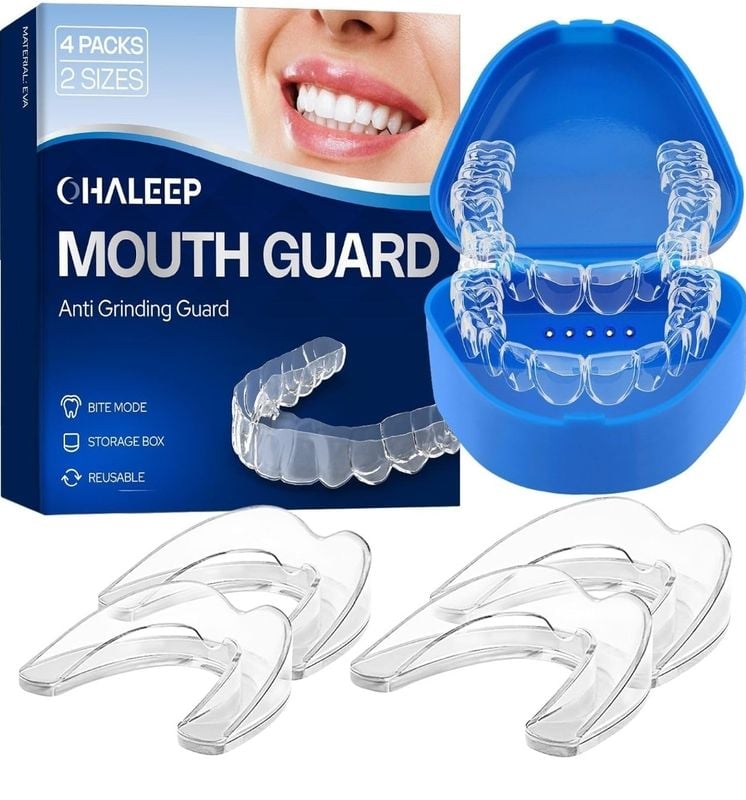Use Code “SAVE10” At Checkout To Get A 10% Discount
How To Stop Teeth Grinding | 5 Techniques You Can Try
Table of Contents
- Teeth Grinding (Bruxism)
1.1. Five Practical Techniques - Frequently Asked Questions
2.1. What Causes Teeth Grinding During Sleep?
2.2. How Can Stress Management Help with Teeth Grinding?
2.3. Are There Any Exercises I Can Do to Stop Teeth Grinding?
2.4. What Role Do Mouthguards Play in Preventing Teeth Grinding?
2.5. When Should I See a Dentist About Teeth Grinding?
Teeth grinding, or bruxism, is a troublesome condition that affects many people, often during sleep. You might wake up with headaches or a sore jaw, while others hear the grinding sounds.
To tackle this issue head-on, you can use five practical techniques. First, consider wearing a nighttime mouth guard; it cushions your teeth and protects them from damage. Second, incorporate stress-reduction methods like mindfulness and yoga into your routine to help ease anxiety that triggers grinding. Third, set up a relaxing bedtime ritual with calming activities like warm baths or herbal tea.
Also, keep an eye on any daytime clenching habits to break the cycle of tension in your jaw. Finally, try avoiding chewy foods and gum that can contribute to the problem. With these steps in place, you could find relief from bruxism and improve your overall well-being without much fuss.
Frequently Asked Questions
1. What causes teeth grinding during sleep?
Teeth grinding, or bruxism, often happens due to stress, anxiety, or sleep disorders. It may also be linked to misaligned teeth or lifestyle factors like caffeine or alcohol use.
2. How can stress management help with teeth grinding?
Managing stress through relaxation techniques, like meditation or deep breathing, can reduce teeth grinding. Less stress means you're less likely to grind your teeth, especially at night.
3. Are there any exercises I can do to stop teeth grinding?
Yes, certain jaw exercises can help relax the muscles and reduce grinding. Gentle stretching of your jaw and massaging the area can also relieve tension.
4. What role do mouthguards play in preventing teeth grinding?
Mouthguards provide a barrier between your teeth, preventing damage from grinding. They also help position your jaw in a way that reduces grinding during sleep. Order a mouthguard to stop teeth grinding today.
5. When should I see a dentist about teeth grinding?
If you're experiencing pain, worn teeth, or frequent headaches due to grinding, it's best to see a dentist. They can assess your teeth and recommend effective solutions.
Teeth grinding, or bruxism, affects many people, often during sleep, leading to noise and discomfort. Here are five techniques to help manage it:
1) Wear a nighttime mouth guard to protect your teeth;
2) Incorporate stress-reduction techniques like mindfulness and exercise;
3) Establish a relaxing bedtime routine to ease tension;
4) Become aware of daytime clenching by checking in with your jaw;
5) Avoid chewy foods and gum that can increase grinding. Acknowledge the emotional impact and seek support if necessary. If issues persist, consult a dental professional for tailored advice.
Pro Tip: Try the 5 techniques mentioned above. Visit our ecommerce store for more amazing products.
Display prices in:USD


